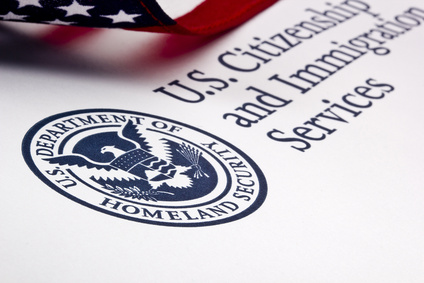Immigration News & Updates eNewsletter
eNewsletter
POSTING DATE: APRIL 25, 2016
Learn More About:
Immigration News & Updates eNewsletter © 2011 - 2016
For questions about U.S. Residency, Green Cards and Immigration Visas, Visit our Website at: www.ImmigrateToday.com or call our office at: (954) 382-5378
Check Out This Cool Stuff For Immigrants....
Immigration
Questions & Answers
Question: My husband filed for my residency application a couple of weeks ago, but I didn't do it certified, now I am starting to worry because we don't know if the immigration received it or not. Is there a way to know what's going on with my immigration papers? Can we go online and check status?
Answer: Once the USCIS receives the application and puts it in the system, they deposit the check or money order and issue a receipt to you which has the case number on it. It usually takes about 7-10 from the date the USCIS receives the application for you to receive the receipt. If you have not received the receipt, check to see if the check or money order was cashed. If it was, get a copy of the back of the check and it will have the case number printed on the back, for example: MSCxxxxxxxx. The case number can be used to check the status online the USCIS website.In the future, use US Postal Service Priority or Express mail so you can track your immigration package and get delivery notification. Never use Certified Mail as it takes too long.
This Week's Immigration News
Tips on Responding To A USCIS Request for Evidence (RFE)
Supreme Court Hears Arguments In The President’s Executive Actions on Immigration
On April 18, 2016, attorneys for the Obama Administration and the State of Texas presented oral arguments to the Supreme Court in support of their respective positions in United States v. Texas, on the President’s Executive Actions on Immigration. The outcome of the case will decide whether the President’s deferred action initiatives announced in November 2014, known as expanded DACA and DAPA, will move forward or continue to be stalled.
Many observers of the hearing feel optimistic about the outcome, given the questions posed to the attorneys, which focused on whether Texas really has standing to bring the lawsuit and whether this is just political dispute about enforcement policies, not the type of legal dispute that should be before the Supreme Court.
A Request for Evidence (RFE) is a letter or notice issued by the USCIS officer to request additional information for pending applications. When an application is being processed by the USCIS and more evidence is required for the officer to make a decision or determine your eligibility, he or she will issue a RFE letter to request additional information or documentation.
When responding to an RFE from the USCIS, always read the RFE letter very carefully to determine exactly what kind of evidence or document is being requested. Some RFE's are vague or seem, while others are simple and easy to understand.
On April 13, 2016, the USCIS released the revised Application for Naturalization form (N-400). The revised form has the edition date of 03/26/16. Beginning August 10, 2016, the USCIS will only accept this new edition. From now until 9/13/13, you can use the earlier 09/13/13 edition.
Take a look at the new Naturalization form:
USCIS Releases Updated Naturalization Form
Helpful Immigration Tips You Can Use...
The Court is expected to issue its opinion in June.
Read a transcript of the arguments before the Supreme Court:
For Affidavits of Support (form I-864), more often than not, the officer will not give a specific list of what is missing, but a generalized list, which makes it difficult to determine what is required. For these and other more complicated RFE letters, you may want to retain an immigration attorney to assist you. Once you have determined what the letter is requesting, be sure to provide the exact document requested. For instance, an officer may request a “long form” of a Birth Certificate. If you respond that you do not have one, your case will likely be denied. The appropriate action to take is to request one from the departmental authority in your country of birth.
All RFE’s have deadline dates, 33 to 87 days depending on the type of case, which requires that the USCIS RECEIVES your response BEFORE the expiration date. If you fail to respond, send the wrong or only partial information or your response is received by the USCIS after the deadline, your case will likely be denied. Always provide a coverletter which lists everything you are enclosing with your response and make a complete copy of everything, including your letter. To be on the safe side, you should always send your response by Express or Priority Mail and get a delivery confirmation. Never send any communications to the USCIS via Certified Mail, which takes much longer and can risk your response being received late.
Once you respond to an RFE, it can take up to 60 days or more for the officer to continue to process your case. You can check the online status to see if it is stating that your RFE response has been received, or call the USCIS 800# to ask if the computer show the USCIS received it. For adjustment case (I-485) requests, the officer may wait to receive your response before continuing processing of your Work Authorization application which will cause delays in its issuance. To avoid this, send your response as soon as possible and do not wait until you get near the deadline in the letter. Good luck!
For every government benefit and program, there is an equal number of scams designed to take advantage of innocent victims who believe they are eligible for a benefit or fearful of a government penalty. Immigration is no exception and in fact, is one of the most often victimized groups, since Immigrants often do not understand the law and how the systems works - a fact that scammers take full advantage of.
My best advice is always to follow the wisdom our parents told us: “if it sounds too good to be true – it is”.
Common Immigration Scams You Should Avoid Falling Victim To:
I commonly hear stories from many Immigrants who come to me after being scammed, and in almost every instance they tell me that in their heart, they knew something was wrong, but they simply did not listen! We can all learn from that.
Click on the links below to read some good information about common scams to avoid:
Another important thing to remember is to follow your instincts. Whether threatened with extortion for money from a fake government employee or promised a Green Card or other immigration benefits for a large fee - which you have been advised you were not entitled to, stop and think, do your research, don’t get caught up in the excitement and become a victim.
Take the Naturalization Self Test
Immigration How To:
How Do I Study For My Naturalization Test?













